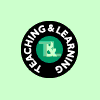 |

 |
|
Distance education has always held special appeal for people with physical
disabilities because of the freedom it offers in choosing when, where, and how to study.
To the extent possible programs should be designed and taught with an awareness that some
students may be unable to see, some may be unable to hear, and others may be immobile.
Special arrangements might be made for supplementing teaching materials, for example,
providing readings on audiotape for visually impaired students or arranging for a person
to take dictation for a student unable to write. Distance education institutions often
provide specialist counselors for people with disabilities. They might also provide
special support to students in hospitals or other institutions. The Hadley School for the
Blind is a well-known example of a traditional correspondence school serving the needs of
those with disabilities.
-
-
-
|
|
Learner Support • Teaching and Learning • Return
Home |